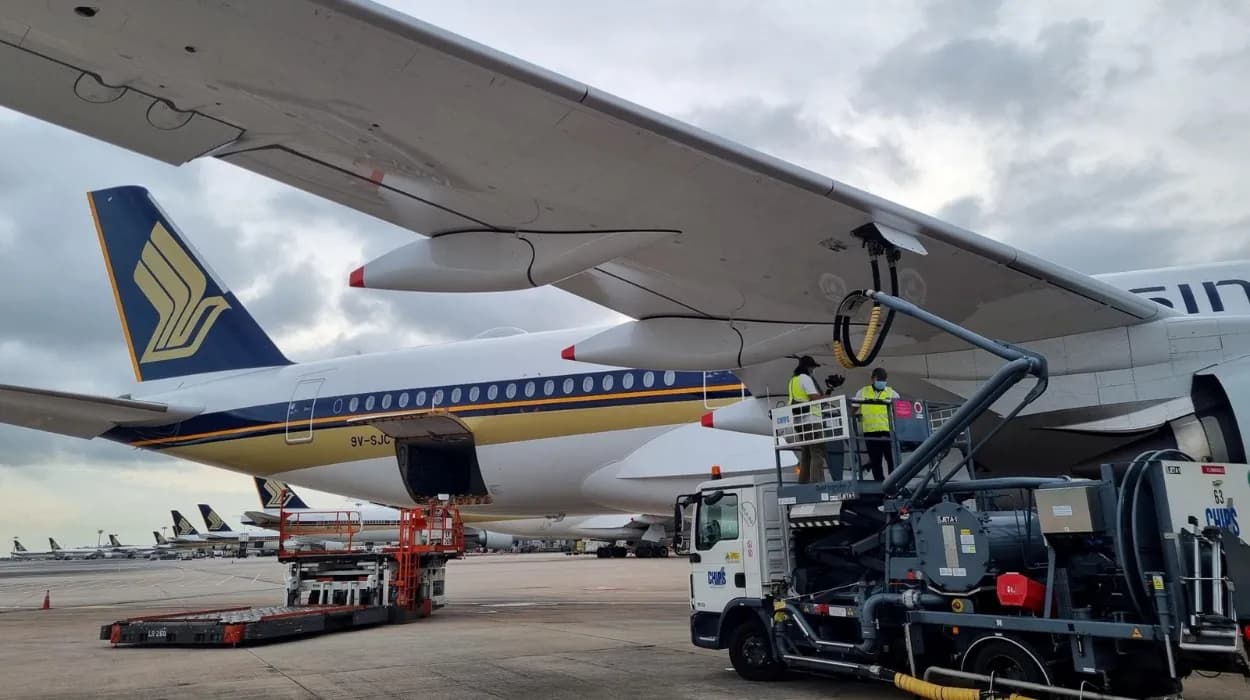Qatar has joined Australia, Indonesia, Singapore, and Spain in a global push to pioneer Sustainable Aviation Fuel (SAF) initiatives, aiming to revolutionize air travel by 2026. This strategic move aligns with industry-wide efforts to drastically reduce carbon emissions, with Qatar Airways partnering with Formula 1 as the inaugural member of its SAF programme, driving commercial-scale adoption and environmental sustainability in aviation.
Qatar’s Entry into SAF Initiatives
As reported by Travel and Tour World, Qatar, alongside
several countries including Australia, Indonesia, Singapore, and Spain, is
spearheading the transition to Sustainable Aviation Fuel (SAF), a biofuel that
significantly lowers carbon emissions in the aviation sector. SAF can reduce
carbon emissions by up to 80% compared to conventional jet fuel, marking it as
a crucial innovation in the drive towards greener air travel.
Qatar Airways has made notable progress with SAF adoption,
with commitments to use 10% SAF by 2030 and achieving a reduction of 19,000
tonnes of CO2 equivalent through its SAF purchases in 2024. The airline’s new
SAF programme positions it to expand SAF use commercially and drive the
industry towards lower emissions.
Collaboration with Formula 1 and Industry Impact
Formula 1's announcement to expand its investment in SAF
through a programme developed with Qatar Airways further underscores the
importance of this initiative. According to Formula 1 Corporate Communications,
the airline has partnered with F1, making it the inaugural member of Qatar
Airways' SAF programme. This alliance is expected to reduce emissions by more
than 8,000 tonnes of CO2 equivalent across the 2024 race season’s air freight
logistics, representing about a 19% reduction compared to traditional aviation
fuel.
Ellen Jones, Head of ESG at Formula 1, stated that this investment is central to Formula 1's Net Zero 2030 target:
“Through collaboration with our teams, the FIA, and our partners, we are delivering on our promises to drive down the sport’s carbon emissions and forward technologies that can have an impact beyond Formula 1”.
Further, Formula 1 plans to use 100% advanced sustainable
fuel for its race cars starting in 2026, showcasing the broader use of SAF
beyond air travel into motorsport.
Global SAF Developments
Beyond Qatar’s initiatives, other countries like Australia,
Indonesia, Singapore, and Spain are also pioneering SAF projects as part of a
worldwide effort to reduce aviation's carbon footprint. These countries aim to
set industry standards and scale production of biofuels derived from
sustainable feedstocks such as waste oils, agricultural residues, and algae.
Virgin Australia has also partnered with Qatar Airways on
SAF production, establishing ethanol to jet SAF facilities contributing to the
global supply of sustainable fuel, which reinforces Qatar’s position as a
leader in the sector.
SAF’s Role in Aviation Decarbonisation
Sustainable Aviation Fuel is increasingly viewed as an
essential component for the aviation industry's environmental strategy to
achieve net zero carbon emissions by 2050. Produced from renewable sources, SAF
offers lifecycle carbon emission reductions of up to 80% compared to
traditional fuels, though challenges such as production capacity and cost
remain.
The collaboration between Formula 1, Qatar Airways, and other stakeholders illustrates the potential of cross-sector partnerships to advance SAF adoption and accelerate innovation in sustainable fuel technology.
With this new SAF programme led by Qatar Airways and endorsed by high-profile partners such as Formula 1, the aviation industry is set to witness a transformative shift in fuel usage by 2026. This marks a critical milestone in the global effort to reduce aviation emissions, demonstrating commercial viability and encouraging further investment in sustainable technologies.
As Qatar joins Australia, Indonesia, Singapore, and Spain among the forerunners of SAF initiatives, the broader aviation ecosystem anticipates a significant reduction in environmental impact while sustaining industry growth and connectivity.
